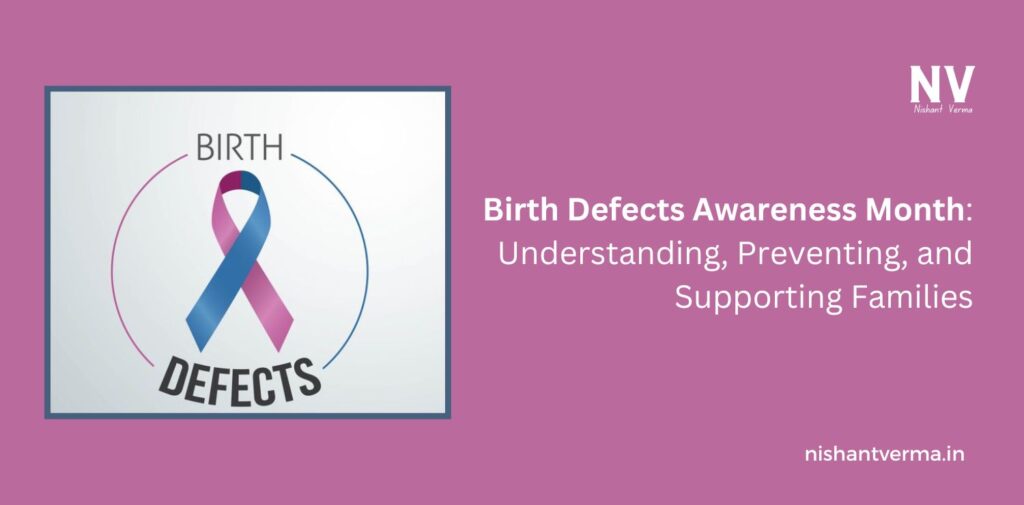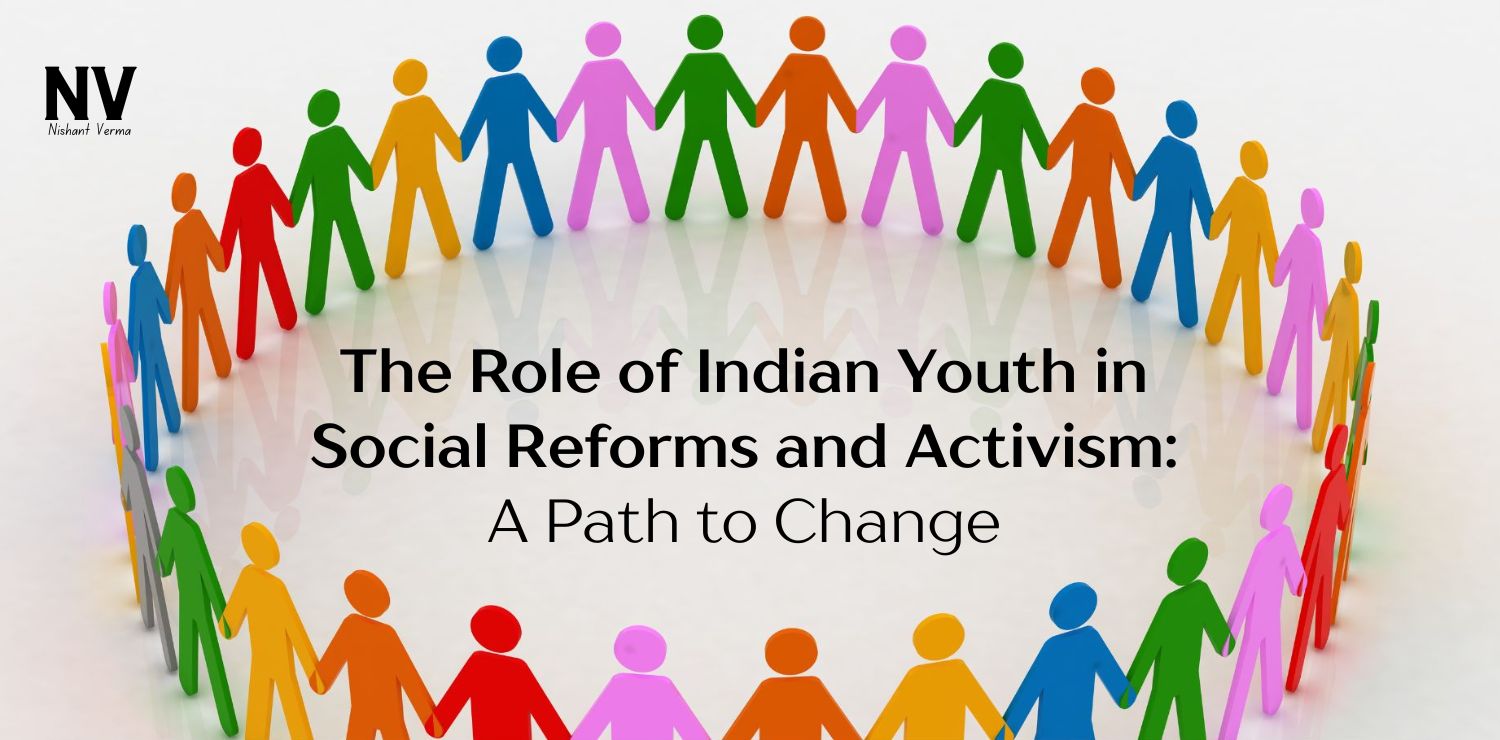Every year, the month of January is dedicated to raising awareness about Birth Defects Awareness Month. Birth defects are conditions present at birth that can affect a baby’s health, development, and well-being. These defects can range from mild to severe and can affect a variety of body parts, such as the heart, brain, bones, or organs. For many families, the news of a birth defect can be overwhelming, but with the right knowledge, early diagnosis, and support, many challenges can be managed or even prevented.
In India, birth defects are an important health concern. The country has a large population, and due to a variety of reasons, including genetic factors, environmental influences, lack of prenatal care, and insufficient awareness, many children are born with health issues. As a part of Birth Defects Awareness Month, we aim to educate families about birth defects, how they can be prevented, and how to support those who are affected.
What Are Birth Defects?
A birth defect is any abnormality that is present at birth and can affect the structure or function of a part of the body. These defects can range from simple cosmetic issues to life-threatening conditions. Some of the most common types of birth defects include:
- Heart Defects: These occur when the heart doesn’t form properly. Common examples include holes in the heart or problems with heart valves.
- Cleft Lip and Palate: This happens when the lip or roof of the mouth doesn’t fully form during pregnancy, creating a gap.
- Spina Bifida: This is a condition where the spine doesn’t form properly, leading to nerve damage and possibly paralysis.
- Down Syndrome: A genetic disorder caused by an extra chromosome, resulting in intellectual disability and developmental delays.
- Clubfoot: This is a condition where the feet are twisted out of shape or position.
- Genetic Disorders: Conditions such as sickle cell anemia, thalassemia, and cystic fibrosis, which are inherited from parents.
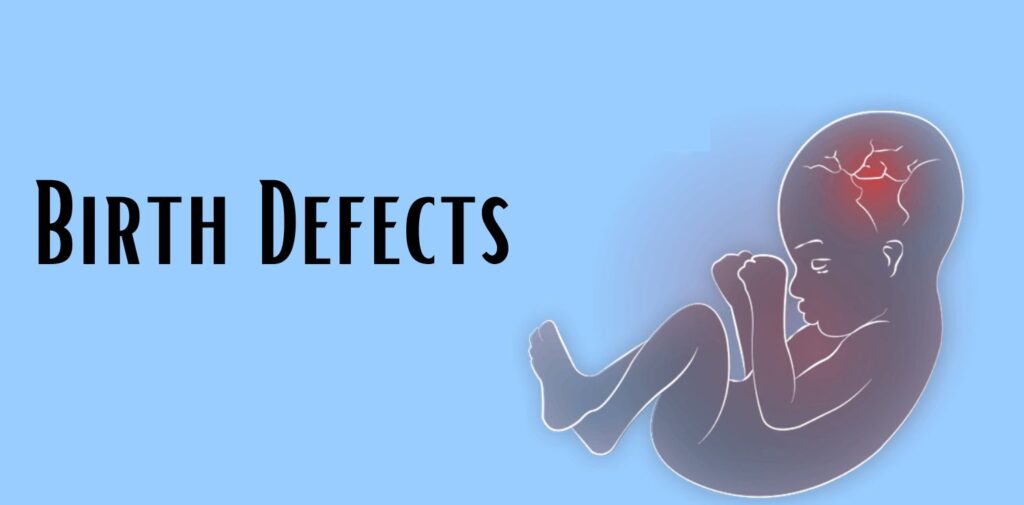
Causes of Birth Defects
Birth defects can occur for many reasons, and in some cases, the cause is not known. However, there are several factors that can increase the likelihood of a baby being born with a defect:
- Genetics: Sometimes, defects are passed down from parents through their genes. If one or both parents carry certain gene mutations, the baby might inherit these conditions.
- Poor Nutrition: Inadequate nutrition during pregnancy can affect the development of the baby. Lack of folic acid (vitamin B9) is especially linked to defects like spina bifida and cleft lip/palate.
- Infections: Some infections during pregnancy, such as rubella, chickenpox, or Zika virus, can cause birth defects.
- Substance Use: Consuming alcohol, smoking, or using drugs during pregnancy can increase the risk of birth defects. These substances can interfere with the baby’s development.
- Environmental Factors: Exposure to harmful chemicals, radiation, or pollution can also play a role in causing birth defects.
- Chronic Diseases in Mothers: Conditions like diabetes, obesity, or uncontrolled high blood pressure can increase the risk of birth defects. Women with these conditions need extra care and management during pregnancy.
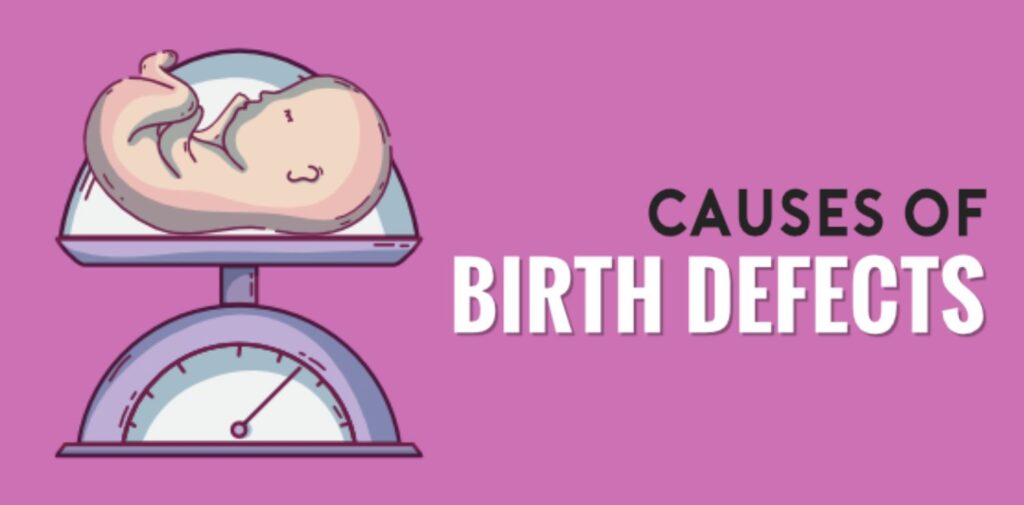
Preventing Birth Defects
While not all birth defects can be prevented, many can be reduced by taking specific steps before and during pregnancy. Some ways to lower the risk include:
- Taking Folic Acid: Folic acid is an essential nutrient that helps in the early development of the baby’s brain and spine. Women who plan to get pregnant should start taking folic acid supplements at least one month before conception and continue during the first trimester. The recommended dose is 400 micrograms daily.
- Healthy Lifestyle: Eating a balanced diet, staying physically active, and maintaining a healthy weight can reduce the risk of birth defects. Pregnant women should avoid alcohol, smoking, and illicit drugs.
- Vaccinations: It is essential for women to be up-to-date on their vaccinations before pregnancy. Vaccines like the rubella vaccine can prevent infections that may lead to birth defects.
- Managing Pre-existing Conditions: Women with diabetes, high blood pressure, or other chronic health issues should work closely with their healthcare providers to manage their conditions. Proper management can reduce the risk of complications for both mother and baby.
- Prenatal Care: Regular check-ups with a doctor during pregnancy are crucial. Routine screening tests can detect potential birth defects early. The doctor may also recommend additional tests based on family history or other risk factors.
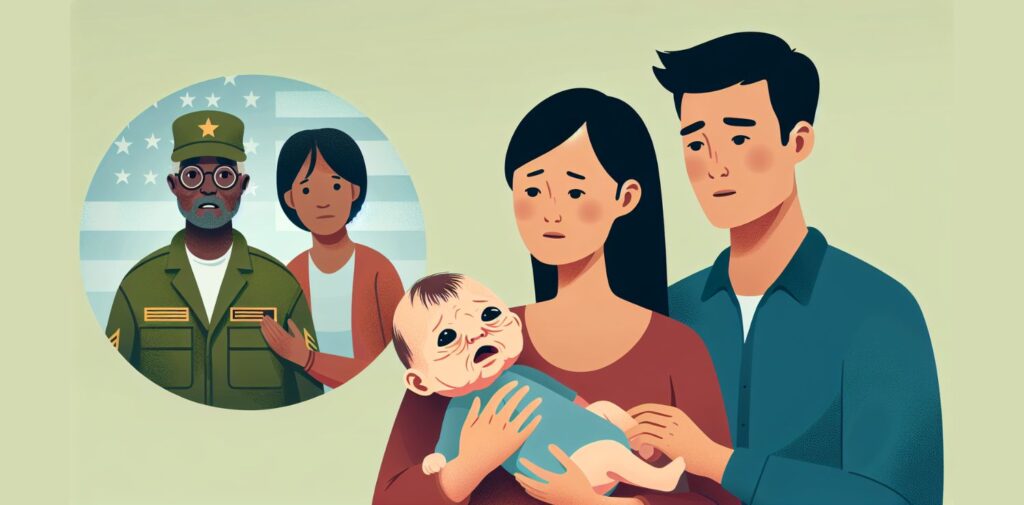
Supporting Families Affected by Birth Defects
For families affected by birth defects, emotional support and guidance are essential. Parenting a child with a birth defect can be difficult, but it’s important to remember that many children with birth defects grow up to live happy, fulfilling lives. Some may require special care, therapy, or surgery, but with the right support, they can thrive.
- Support Groups: Joining support groups can help parents connect with others who are going through similar experiences. In India, there are several non-profit organizations and online communities dedicated to helping families affected by birth defects.
- Counseling: Psychological counseling can help parents cope with the stress and emotional impact of having a child with a birth defect. It is important for families to have access to mental health resources.
- Financial Assistance: The treatment for certain birth defects can be expensive. Families should look into financial support programs or insurance schemes that can help with medical costs.
- Education: Parents should educate themselves about their child’s condition, treatment options, and potential long-term outcomes. Knowledge empowers them to make the best decisions for their child’s care.
Conclusion: Birth Defects Awareness Month
Birth Defects Awareness Month serves as a reminder to educate ourselves about the causes, prevention, and support available for those affected by birth defects. In India, where the burden of birth defects is significant, it is important that we raise awareness, share information, and promote healthier pregnancies through education and community support.
Every year, with the right knowledge and proactive measures, we can reduce the number of babies born with preventable birth defects. By supporting affected families and promoting better health practices, we can help ensure that every child gets the best start in life.
Let us use this month to create a society that understands birth defects, prevents them when possible, and supports the children and families who live with them every day.

